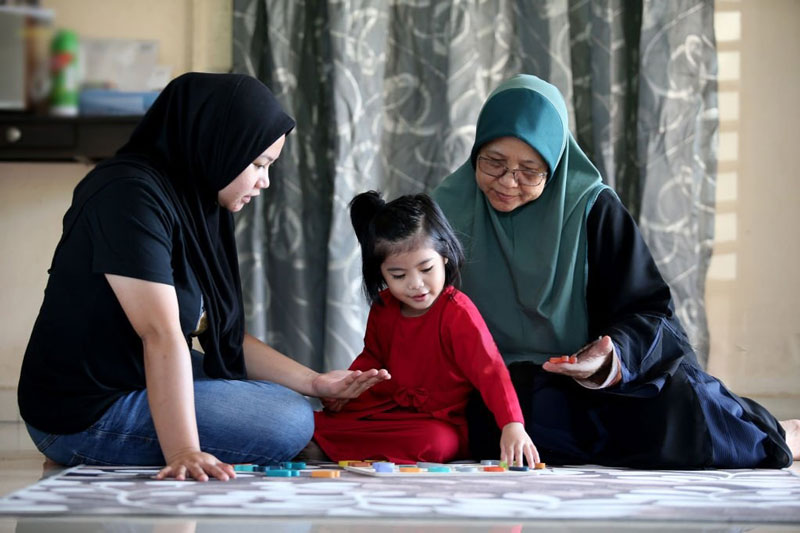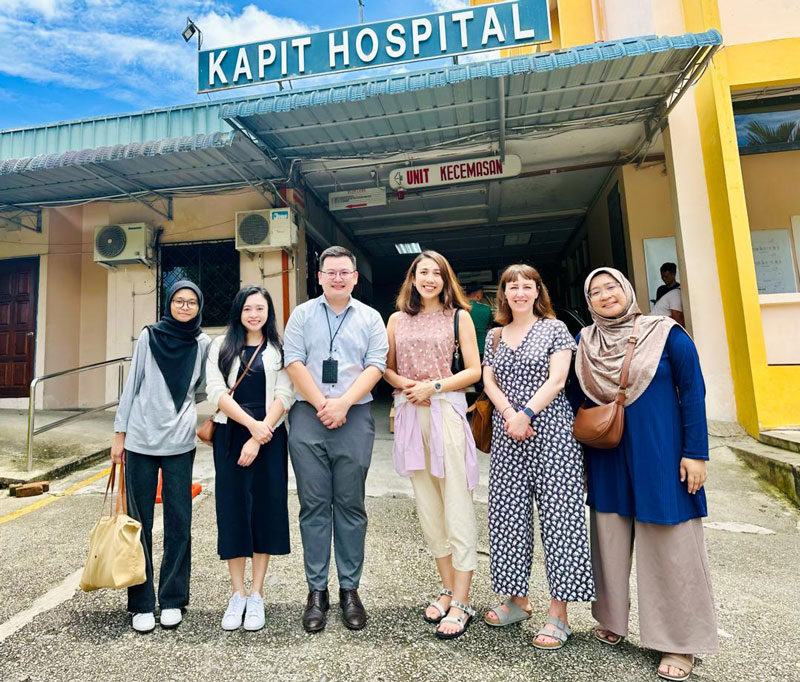Neurodivergence has long been taboo across Asia. Even today, many Asian communities tend to reject the notion due to cultural stigma and lack of awareness. That’s why Dr Christine Leong and her research team from the School of Psychology are working to make diagnoses more inclusive and accessible for all, starting from Malaysia.

A Malaysian child receiving proper care and support after being diagnosed
Resource and Support Inequalities in Underserved Regions and Societies
In many non-Western countries, children suspected of having neurodevelopmental conditions often face prolonged delays in receiving assessments, diagnoses and appropriate support. A significant barrier to timely interventions is the shortage of culturally adapted assessment tools, as most existing instruments are developed for Western, English-speaking populations.
Revolutionising Child Development Screening

Dr Christine (third from right) and collaborators at Kapit Hospital
Dr Christine and the Nottingham Psychological Assessments Library (NottPAL) research team are currently working to adapt and validate the Malay Five-to-Fifteen Revised (5–15R) questionnaire - a screening tool designed to identify developmental and behavioural challenges in children aged 5 to 15. In addition to translating and culturally adapting, the team compares data from neurodivergent and neurotypical children to create Malaysian-specific developmental profiles. These will serve as valuable references for clinical professionals conducting assessments and diagnoses in local contexts.
“Early and accurate screening enables us to identify at-risk children who require targeted support during their critical development years,” says Dr Christine. “By tailoring assessments to Malaysian children, we are equipping caregivers and healthcare professionals with the tools to better understand their children and provide effective care and support to help them reach their full potential.”
Supported by the University of Nottingham UK and clinician collaborators, the team has actively engaged local clinics, hospitals, schools, and developmental centres across Malaysia. Through knowledge exchange seminars and competency training in data collection, the team has empowered more than 270 professionals to better support local neurodivergent children.
The ultimate goal of this project is to create a locally standardised screening tool for Malaysians - one that enhances diagnosis accuracy and efficiency. Such a tool will enable earlier and more inclusive interventions and contribute to improved developmental outcomes and quality of life for neurodivergent children. For many who have been overlooked by existing assessments, receiving an accurate diagnosis could be life-changing.
Every child deserves the chance to be understood, supported, and empowered to thrive. This project marks a meaningful step toward making that vision a reality.